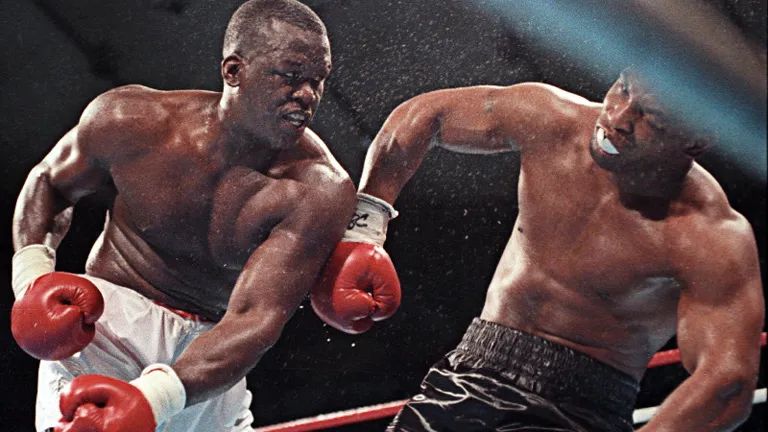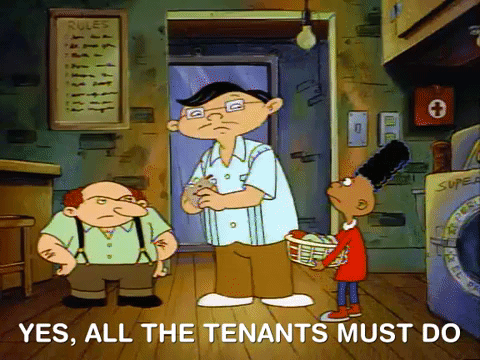7 recognition strategies to help you overcome difficult tasks
Author:Cool brain Time:2022.09.06


Via: freepik
The following is the audio of the full text of Miss Sister
Author | Kevin Dutton
Translation | Cotton Bear
Grade -Cool Brain Creative
Reading | Hu En
Artist | Jenny
Edit | yj
When you face a difficult task that seems impossible to complete, what should you do? The answer is to help "God"!
Whether it is moving, planning a wedding, or a major market for winning a big customer, how many times do you find that when you face a task, your brain "freeze" in a blind panic?
the reason is simple. When you face a big and complicated problem, your brain will be attracted by complex and complicated needs and urgent Deadline. You don't focus on what you need to do. On the contrary, looking for comfortable needs or distraction constantly affects you. You pick up a piece of chocolate or browse social media leisurely -as if this can solve the problem.
Just like our prehistoric ancestors will compete for limited physical resources, the threat of psychological scarcity -there is no enough time, no energy, and too many things to do -in our contemporary brain "War or escape" reaction usually leads to modern "freezing" ... procrastination. We started buying something unnecessary on Taobao, brushing our Weibo, or opening the WeChat dialog box to start chatting with friends.
So, what should you do when you face a difficult task that seems impossible to complete?
The answer is to help "God"!

Via: giphy
As early as September 2021, we began a one of them, including ourselves, and we thought it was completely crazy. The subway marathon challenge includes walking through 317 subway stations in London within two weeks. When the world's greatest explorer Ranulph Fiennes said a few words of encouragement, you know how difficult it is to do!
"The Metro Marathon Challenge requires the old -fashioned special forces to combine courage, preparation and endurance." "I wish you good luck." Andy McNub, a former special forces soldiers and later became best -selling writers ( Andy McNab) is also cautious. He commented: "The subway marathon challenge is weird, very creative, but it is really difficult."
In my opinion, we have half of our chances. And we succeed. When we passed the finish line in less than four hours, we became the first person in history to browse the entire subway system in a major city. mission completed
But this is not easy. The success of this adventure to a large extent depends on our strict adherence to a set of omnipotent psychological codes, which we call it the "God Principles." "God" represents courage, organizational and determination (God, Guts, Organization, Determination), and "God" is by your side, we believe that you can almost achieve anything that you determine in your life, whether it is big or small.
In this guide, we will study every component of all the cognitives that conquer everything to accurately understand the success of the challenge of the subway marathon, and how you face any major in your life Use them when challenging.

Via: Tuyuan Internet
How to do
1. Find your "why"
German philosopher Friedrich Nietzsche wrote in his classic book "The Dusk of Idols": "There is one for" why "(why) can almost endure any" how "." We believe in the power of psychology, but if there is no 'why -if your task lacks vision or your mission has no fundamental purpose, then even God is difficult to help you.
The subway marathon challenge is a serious project, which is also profound. A long time ago, one night with a random conversation with a tramp under the bridge, the life of a stray guy had a profound impact on Kevin -one of the challengers -one of the challengers. When the man died on the street during the epidemic to Kevin, Kevin was greatly affected. What he wanted to do is not only to show respect, but also to thank him for that special night with him Time to spend. If we can raise some cash in this process, and in a small way, it is even better to pay attention to homelessness.
The power of the target can be seen everywhere in sports. In 1990, the boxer Douglas let the powerful Mike Tyson experience the first few weeks before the first defeat in his boxing career, Douglas's mother died. This battle was not smooth sailing. In the eighth round, Tyson knocked Douglas on the ground with a explosive uppercut, and in general, when Tyson fought against the opponent, his opponent would still move.
But this time is not.
Douglas was lying on the boxing platform and immersed in pain and confusion. He suddenly remembered the promise he made at her mother's funeral 23 days before the game.
"Mom" he said. "One day I will become the world's heavyweight champion!" "The rest is history. Douglas stood up and stood up and endured this storm. After two rounds, he remembered his fatal blow. He knocked down Tyson and won the championship.
Who knows what is the "reason" of Tyson's night? But, anyway, Douglas has a greater opportunity -this is precisely that allows him to achieve extraordinary victory.
Via: Tuyuan Internet

2. Courage -welcome the challenge
The first component of the "God Principles" was summarized by the famous American general George Smith Barton in World War II: 'WHEN in Double, Attack.' The late great Australian cricket player, rotating balls, Shane Warne repeated the words of Barton in six words: 'if in doubt, Attack Every Time. ")
In the last few weeks of preparing for the subway marathon challenge, one of us (Kevin) tended to delay for several months. He was worried that he was not training enough. John disagrees. He pointed out that on the starting line of the Olympic finals, whether it is sitting or standing, few athletes can be 100 % ready to welcome the upcoming challenge. Any challenge always has skepticism: I feel that I do not do enough and cannot complete the work. John observed that at this critical moment, you only need to support yourself. You must take your first pole and take your first step.
In short, you need the courage to meet the challenge.
There are two scientific basis for "overcoming" a task that is obviously impossible. The first is unconscious handling: Starting a task as soon as possible will stimulate your brain to continue working, even if you have been working hard for a day.
These processes were explored in the early 20th century. At that time, Kurt Lewin, a format psychologist, described his graduate student Bluma Zeigarnik, a observation in a restaurant. Essence Levin noticed that the waiter's memory of the unpaid orders seemed to be better than his memory of the order that had already paid out.
Out of curiosity, Caigoni studied and found that the waiter was not the only person who enhanced the memory ability of unpaid menu. In fact, when the interrupted task or activity is more likely to be recalled than the completed tasks or activities, the "Caigoni effect" of the same name will occur. This effect means that the sooner you start challenging, the more your brain can do more work when you are not challenging -in addition, as you get more and more familiar with this process, it will not be terrible Essence
The latter observation results are called "simple exposure effects" or "familiarity principle". This phenomenon was first proven for the first time by social psychologist Robert Zajonc in the biography dictionary. In short, when we have encountered something, it will make it easier for us to think of it, and this experience usually makes us prefer it. This is why we prefer a song when we hear the second and third time, and why the behavior of our inadvertent task makes it easier to complete.
Someone once said that you will be happy one year later. You start from today. I hope this sounds familiar.
The second scientific reasons for "now" are related to stress management and self -protection. Studies have shown that the longer you drag unpleasant tasks or events, the more negative the overall experience. In a study, the participants were required to choose whether to accept a strong electric shock immediately, or to receive a lighter electric shock later, and 70%of them chose to "end" now.
Is it crazy? No. People have calculated it, and then the fourth -level electric shock and all expected anxiety are later. In general, the negative experience generated by the previous six -level electric shock (so there is no anxiety) itself.
So, when we face uncomfortable difficulties in "real life", why not choose "start" instead of delay like those participants?
We think this is because in research, a "decision" is enough. Once people make this decision, their tasks are completed. On the contrary, when we procrastinate things in our work, we are mostly because of inertia. Once you decide to take action, we must also take action instead of making a decision.
Via: giphy

3. Starting action should be divided into two steps -launch and execute
How can you make yourself easier to face fear and stifle anxiety in the bud? The answer is surprisingly simple:
First of all, clarify anything you want to start.
Second, you need to persist.
Never set fuzzy goals and commit to completing the goals you set. The more vague they are, the more likely you will make excuses not to do it. Therefore, turning the vague "I will start writing a report/promotion tomorrow" into a specific "Tomorrow at 9:30 in the morning. As soon as I sit at the desk to drink a cup of coffee, I will start drafting a introduction to explain business opportunities Emphasize the potential business model and explain why we can win the market. "In your mind, the clearer you need to do, the greater the chance of you to complete it. "
Then, when you settled in front of your desk at 9:30 the next morning, and immediately regret the promise of the day before, do not depend on your feelings at the time, but persist in your previous plan. At this time, when you are hesitant at the door of the escape plane, humming arguing whether jumping out of the cabin is a correct decision, you must be comforted from the scientific parachute. Landing is softer than you think. 4. Organization -divide the challenge into a few pieces
When I (Kevin) was seven years old, my father's car broke down on the highway. We stopped on the side of the road and began to move towards the nearest emergency telephone booth. The telephone kiosk was located on the side of the road at that time. It was a cold, humid and dark night, and the dense fog shrouded us.
Dad took out a flashlight from the glove box and handed it to me. There are no lights on the highway, and we can't see where we are going. Except for the occasional thunderous enlightenment moment, a huge truck drove across, and the headlights were shining. I took the flashlight directly in front of me, but I couldn't see anything.
"Dad," I shouted, "This is no hope. I can see more clearly in the darkness.
I will never forget what happened next. Dad turned around, took the flashlight from my hands, and shown it on the ground a few inches in front of my feet.
"You don't need to see a mile road," he said. "All you need to do is to put one foot in front of the other foot. As long as you can see enough things, you will be fine.
I can. Although, it is fair to say that a car failure occurred on the northern road leading to Donalt in the middle of the night did not make much significance, but for me, this was an experience that changed life -I learned that the challenge will decompose the challenge decomposition The management part of Chengke is a technique worthy of grasping. This is the "organization" part of God's principle.
Well, we admit that this is not the exclusiveness of the sky. Dear Chinese philosopher Lao Tzu, only taking an ancient thinker as an example, he defeated us about 26 centuries ago. At that time, he observed "a thousand miles, began under the foot".
Viapixabay
Recently, there is a psychological study about blocks. Blocks are a test -long cognitive strategy that aims to maintain great attention and willpower by dividing larger tasks into small, reward, and small stages.

It is important that the parts not only make the challenge look easier, but it also helps to motivate people to complete the task. As early as 2012, John Salamone, a psychologist at the University of Connecticut, led a study that helps to explain this reason. He put the mice in a cage with two piles of food. The road leading to one of the stone piles is easy to walk. The other is twice as big as this, but it is blocked by a small obstacle. Before putting the mice back to the cage, Saramun adjusted the dopamine level in their brains.
His discovery challenged the preconceived view of our rewarding circuit. Mouse with lower dopamine (usually wrongly referred to as "happy elements") is always choosing a easier and more smooth path to eat a single food. But those mice with high neurotransmitted levels bravely walked through this difficult route. They chose to skip a small fence and enjoy two foods.
Salamone's conclusion is that Dopamine has little relationship with happiness -as I thought before -and it is more related to driving force, motivation and interest: it is related to the cost -effective analysis of the cost benefits participating in specific activities. Dopamine is not a "happy" element. This is the "motivation" molecule.
So, where do you get this kind of pitch? The answer is the expectations of progress and achievement. Whenever you want to do one thing -whether you make the right prediction, or you see the opportunity to complete the challenge -the brain will celebrate by injecting dopamine, stimulate your motivation, and then when things go smoothly, Inject dopamine into the sweet pleasure of accomplishment. Everything, from thinking about a joke to drafting an amazing marketing plan, to the final completion of the subway marathon challenge, it can be a thing worth celebrating the brain's social calendar.
Dopamine "hitting" is basically a pattern of your forehead cortex. This is the brain to appreciate itself. This is why the video game is so addictive, and why if you want to make yourself the best state, you need to consider turning your life like this.
These games are organized into different stages and stages, and they frequently provide good feedback based on gradual progress. They make large, distant, advanced goals -to complete the game -divided into smaller, closest, and more direct goals: to reach the next level. They make your cognitive energy firmly lock on your goal.
Rome was not built in a day. But it was built day by day.
Via: pixabay
5. Decompire difficult challenges into management parts

In order to apply this technique, listing a small task list will help, but if you want to truly and effectively execute this list, you must prepare this list in an orderly manner:
List all the sub -tasks you need to complete.
Arrange these sub -tasks in the order that must be completed.
Create a column on your timeline, which contains any tasks that can be approved reasonably.
By the colors of different tasks based on these rules: green = fast/easy; yellow = medium difficulty; red = long time/effort. Plan in advance, and allocate the appropriate time for each task according to the color coding.
Finally, don't forget to practice some self -sympathy -as we are talking about -properly reward yourself at different stages of the process. To put it seriously, how to emphasize the active consolidation of your ability to focus on, input and motivation on a task. But this requires scientifically. If you plan to reward yourself, you need to do so. Persistence is the cornerstone of power, and power is the cornerstone of efficiency, confidence and success.
In a marathon, walking with a soft, buffer foot on the ruthless, endless asphalt road, this "block" approach has a confirmed record. Paula Radcliffe, the former women's World Record Stando, revealed that she often counts to 100 in the game because three consecutive times are usually equivalent to one mile. Since then, happy runners around the world have been relieved, because they are not the only person wearing Leica materials and enthusiastically talking to themselves.
In the subway marathon challenge, John and I raised section training to a new height. On the first day of studying the entire London subway map, we made this big mistake, morale plummeted, and we vowed no longer to do so.
On the contrary, from that moment, we allocated all subway stations to every day, and arranged the necessary progress to list our number of stations and write these stations on a small piece of paper. Once we come up with the daily site allocation, we will further divide the list into morning, noon and afternoon, and focus on covering the site containing each part.
Completing itself is a positive strengthening. Remember the importance of the tasks we set for ourselves, approach our goals little by little, and slowly start our internal rewards layer by layer. This is enough to offset any short -term pleasure brought by external incentives. In addition, how much can you eat in a day, Tiramisu wheat flour, chocolate chocolate Browni, chocolate milk cotton cream and fresh cream?
Via: giphy
6. Determination -Keep self -discipline in challenges
According to reports, Walter Disney once said: "The difference between victory and failure is often not giving up." Anyone who has fallen into "endless waiting" on customer service calls will understand what he means.

The research of Roy Baumeister and others provides how to maintain a determination. They think that willpower works like muscles. Due to stress and excessive use, it will become fatigue and need to rest. For example, these studies have shown that we are involved in testing our determination activities -for example, when we are hungry, we say "no" to a biscuit, or try to quit smoking -after we try to quit smoking -after we try to quit smoking -after we try to quit smoking — the temptation will become more difficult. In the recognition of psychological psychology, these discoveries inspired the self -loss theory of Baumeister. But this is just part of the story. There is also a reverse self -loss -although the repeated use of willpower in the short term becomes tired, long -term frequent use will make it stronger and improve your level of self -discipline and self -constraints. Therefore, the use of gravel in moderation will become stronger.
For example, in some experiments, participants need to record their eating habits for several weeks (that is, develop the habit of exercising self -control), or use their non -usual hands to do daily housework. Participants always maintain a higher level of overall self -control when they complete the original task. As they said, either use your willpower or completely throw your willpower.
During the Metro Marathon Challenge, we will use the metaphor of "willpower like muscle", and we will complete the goals of all stations on time as priority. If we need to finish a site before lunch, then there is no room for discussing this number. No matter how tired we were, or how night we started working that morning, we all walked 10. We constantly exercise the muscles day and night, and over time, it becomes stronger and stronger.
So, why is our willpower muscles never fatigue? This may be related to our emphasis on discipline and self -control, and the essence of our "attack mentality". Cross -cultural studies have found that this is related to how you think of psychological activities. Unlike Western participants, Indian participants who have completed the challenges of difficulties actually actually perform better than those who have completed simple challenges in subsequent challenges: their brain is not surprising, because of difficult challenges, because of difficulty challenges, they are in difficult challenges. Become active.
This is consistent with India's educating children's efforts to make people full of vitality. Therefore, they have learned concentrated attention from an early age, such as focusing on the flames of candles in the dark room. Prayer and meditation are also important for this -so it is not surprising that Indian students spend more time in reading and doing homework than American students.
Once again, we see that these psychological principles play a role in the sports industry. A few years ago, when Sir Alex Ferguson taught at the Aberdeen Football Club, sometimes he and assistant coaches took 6 hours to take turns to go to Grassgow to watch the opponent's game. Sir Ferguson recalled in his book (2015) in his book (2015): "Whenever we want to miss a game for a night, we always say to each other:" If we miss a game in Glasgow, we I will miss two games ... "
In other words, if Sir Ferguson and his colleagues missed a game, then the possibility that they missed another game will greatly increase -the same principle is also applicable to your own challenges.
7. Keeping discipline to maintain discipline
You can call this "the end of the wedge" or "landslide effect". If you miss a promise, your willpower will be threatened, which increases the possibility of your determination to realize future commitments. This is why it is so important to stick to your plan.
Social psychologists who have formed a research attitude and belief have known this many years ago. This phenomenon is regarded as a simple saying: "Under the circumstances of given, past behavior is the biggest factor in predicting future behavior." If you are going to learn for the exam, but you are addicted to chasing the drama, then it is likely that it won't be long, and you will throw away the class notes again. We like to say this: If you want to stop, don't start, if you want to start, don't stop.
Via: giphy
Reference (click slide to view)
1. Salamone JD, Correa M, Nunes EJ, RANDALL PA, Pardo M. The Behavioral Pharmacology of Effort-Related Choice Behavior: Dopamine, Adenosine and Beyond. Doi: 10.1901/JEAB.2012.97-125. PMID: 22287808; PMCID: PMC3266736.
2. Baumeister, R. F., Bratslavsky, E., Muraven, M., Tice, D. M. (1998). Ego depletion: is the active self a limited resource?. Journal of personality and social psychology, 74(5), 1252–1265 . https://doi.org/10.1037/0022-3514.74.5.1252

3. Masicampo, E. J., Baumeister, R. F. (2008). Toward a Physiology of Dual-Process Reasoning and Judgment: Lemonade, Willpower, and Expensive Rule-Based Analysis. Psychological Science, 19(3), 255–260. https:/ /doi.org/10.1111/j.1467-9280.2008.02077.x
Cool brain long -term collection of brain science and psychological articles, welcome to submit
Please submit a mailbox: [email protected]
Click here, let friends know that you love brain science


- END -
Lixiang Shandong | Cultural Museum people really take on the mission of "lift the banner and gather the people's heart"

Dai Weiyi, a third -year student of Jinan City, Shandong Province, was the first t...
Lile and Le Shandong | Sino -foreign Cultural Exchange Center signed a strategic cooperation agreement with the Shandong Provincial Department of Culture and Tourism

On the evening of June 26, the 2022 Shandong Tourism Development Conference opened...